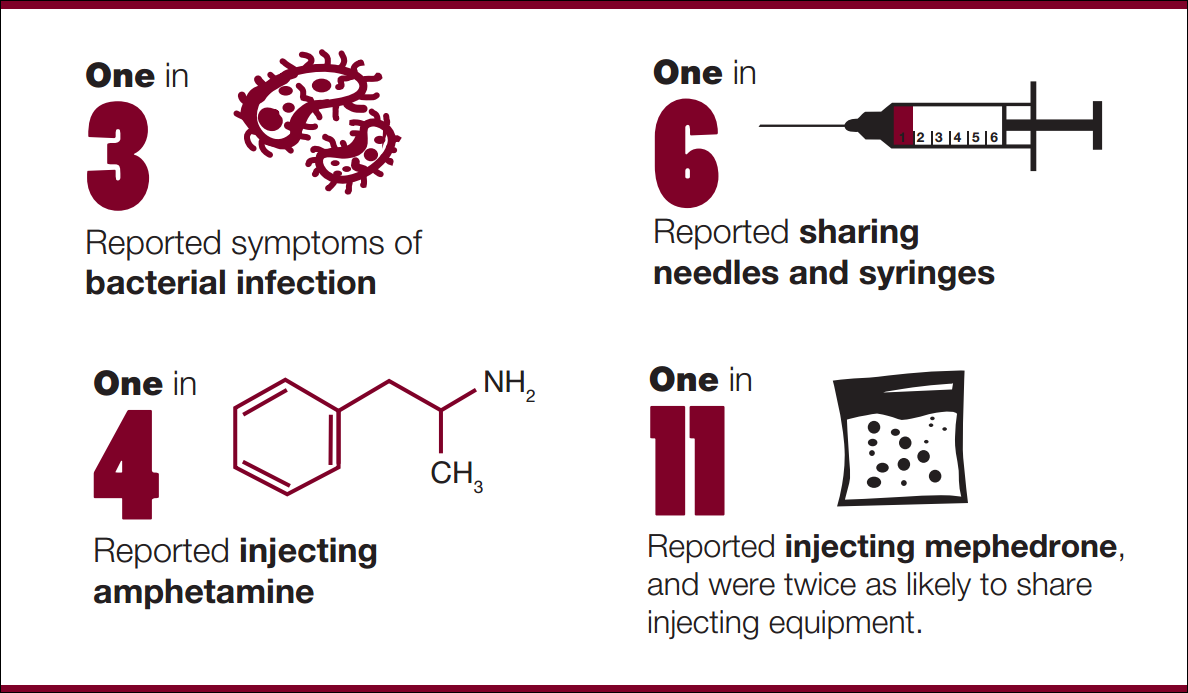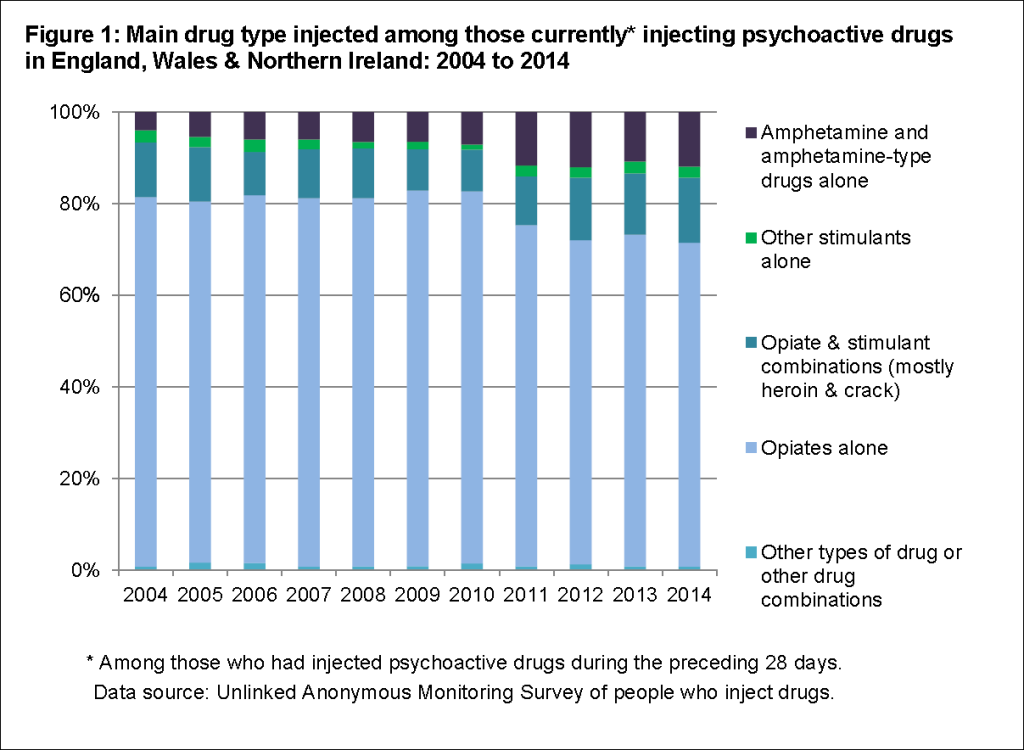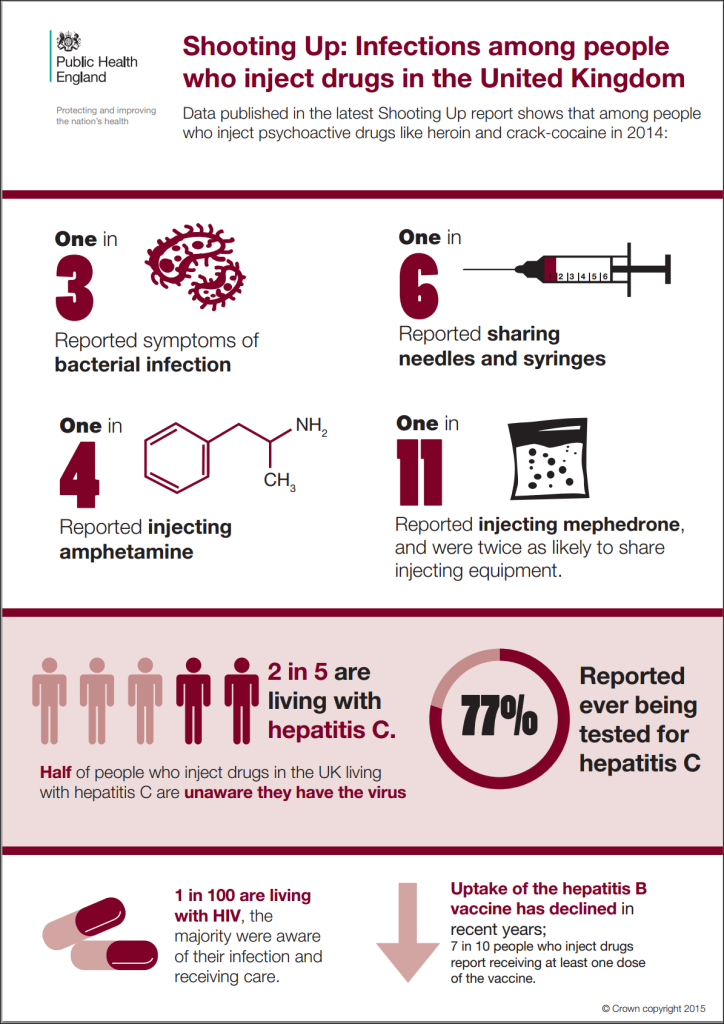Concerns shooting up
A new (12 November 2015) report from Public Health England – Shooting Up: Infections among people who inject drugs in the UK, 2014 – paints a worrying picture of the range of risks run by people who inject drugs.
The report, based on data to the end of 2014, highlights six key issues.
1: Changing patterns of psychoactive drug injection are increasing risk
The recent increase in the number of people injecting a range of stimulants, particularly the recently emerged psychoactive drugs such as mephedrone, is a concern. Over the past decade, the number of people reporting that amphetamines and amphetamine-type drugs are their main drug of injection has increased three-fold. One in eight now say these are the main drug they inject. People injecting stimulants report higher levels of risk behaviours such as sharing and reusing needles and syringes. Although the number injecting these drugs remains small when compared to those injecting opiates or image and performance enhancing drugs, the higher level of risk behaviours associated with their use can increase harm.
Here’s the chart showing this increase:
2: Bacterial infections continue to be a problem
A third of people who inject psychoactive drugs report having a recent symptom of a bacterial infection. Outbreaks of infections due to bacteria, such as Clostridium botulinum, continue to occur in this group. Some of these infections are severe and place substantial demands on healthcare.
3: Half of those with hepatitis C remain unaware of their status
Hepatitis C remains a major problem among people who inject drugs in the UK, with significant levels of transmission continuing to occur. Two in five of those who inject psychoactive drugs are living with hepatitis C and about half of these infections remain undiagnosed. This underlines the need to identify, and make use of, the opportunities for regularly offering tests to those at risk.
4: Hepatitis B remains rare, but vaccine uptake has stopped improving
Around one in 200 people who have injected psychoactive drugs are living with hepatitis B infection. This low level probably reflects the marked increase in the uptake of the hepatitis B vaccine. Vaccination uptake in this group is no longer increasing and may now be declining. Most of those who have not been vaccinated have been in contact with health services where they could have received a dose of the vaccine.
5: HIV levels remain low overall and the uptake of care is good
Only around one in 100 people who inject drugs are living with HIV; most of these people will have been diagnosed and be in receipt of care. However, HIV transmission continues among people who inject drugs and the recent outbreak in Scotland is a concern.
6: Provision of effective interventions needs to be maintained
The provision of effective interventions, such as needle and syringe programmes, opioid substitution therapy and other treatments for drug use, which act to reduce risk and prevent infections, need to be maintained. These interventions need to respond to any changes in patterns of drug use and associated risk. Vaccinations and diagnostic tests for infections need to be routinely and regularly offered to people who inject drugs in line with guidance. Appropriate care pathways and treatments should be available to those testing positive.
The current significant cuts in drug treatment budgets are likely to make the provision of these interventions harder to maintain.
The reports findings are helpfully summarised in the infographic reproduced below:



